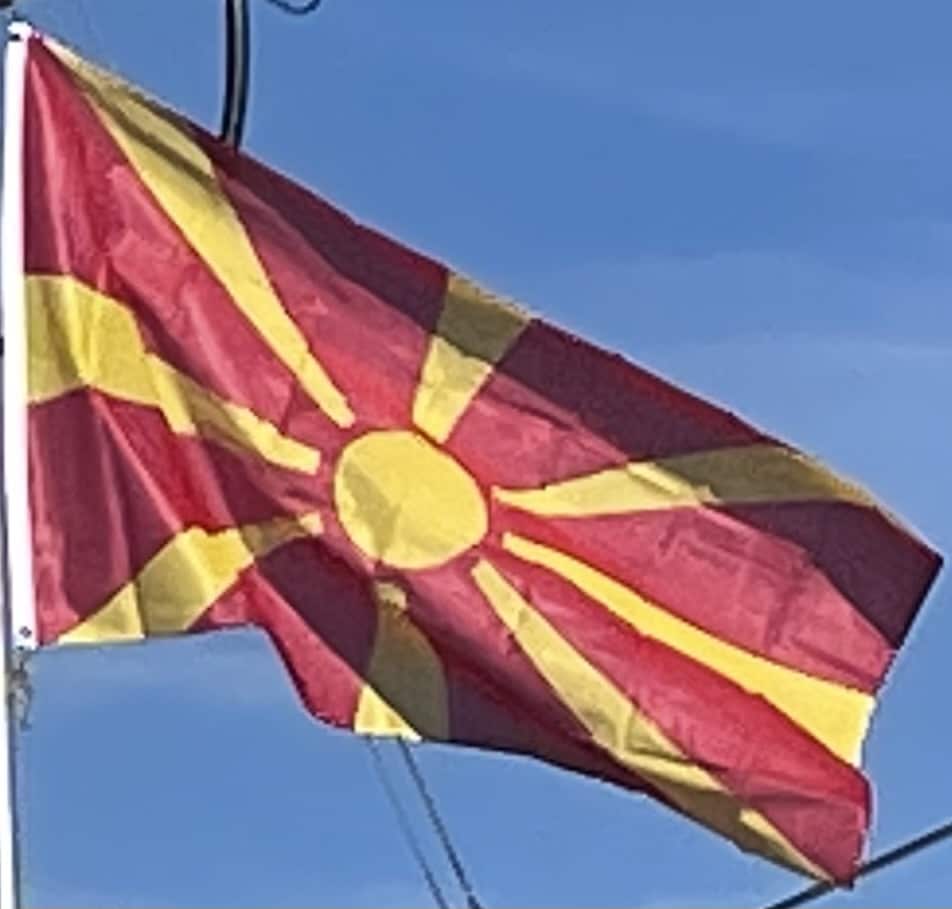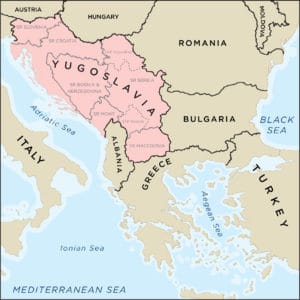
The new republic became one of the six republics of the Yugoslav federation. Following the federation’s renaming as the Socialist Federal Republic of Yugoslavia in 1963, the People’s Republic of Macedonia was likewise renamed the Socialist Republic of Macedonia.
Declaration of Independence:
North Macedonia officially celebrates 8 September 1991 as Independence day, with regard to the referendum endorsing independence from Yugoslavia. The anniversary of the start of the Ilinden Uprising (St. Elijah’s Day) on 2 August is also widely celebrated on an official level as the Day of the Republic.
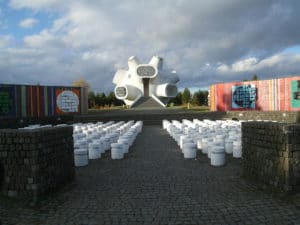
Robert Badinter, as the head of the Arbitration Commission of the Peace Conference on Yugoslavia, recommended EC recognition in January 1992.
North Macedonia remained at peace through the Yugoslav Wars of the early 1990s. A few very minor changes to its border with Yugoslavia were agreed upon to resolve problems with the demarcation line between the two countries. It was seriously destabilised by the Kosovo War in 1999, when an estimated 360,000 ethnic Albanian refugees from Kosovo took refuge in the country. They departed shortly after the war, and Albanian nationalists on both sides of the border took up arms soon after in pursuit of autonomy or independence for the Albanian-populated areas of North Macedonia.
2001 Insurgency:
A conflict took place between the government and ethnic Albanian insurgents, mostly in the north and west of the country, between February and August 2001.
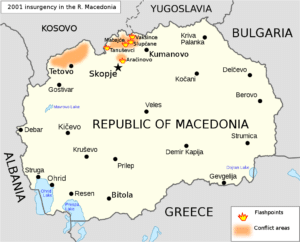
The war ended with the intervention of a NATO ceasefire monitoring force. Under the terms of the Ohrid Agreement, the government agreed to devolve greater political power and cultural recognition to the Albanian minority. The Albanian side agreed to abandon separatist demands and to recognize all Macedonian institutions fully.
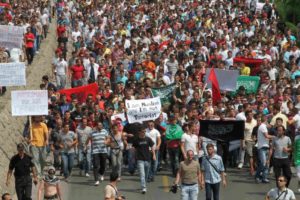
Inter-ethnic tensions flared in North Macedonia in 2012, with incidents of violence between ethnic Albanians and Macedonians.
21st Century:
The Prespa agreement, which replaces the Interim Accord of 1995, was signed on 17 June 2018 by the two foreign ministers Nikola Dimitrov and Nikos Kotzias and in the presence of the respective prime ministers, Zoran Zaev and Alexis Tsipras.
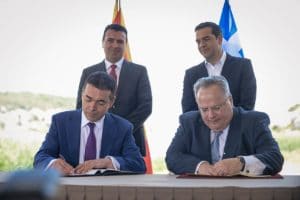
The withdrawal of the Greek veto resulted in the European Union on 27 June approving the start of accession talks with the Republic of Macedonia, which were expected to take place in 2019, under the condition that the Prespa deal was implemented and the country’s name was changed to Republic of North Macedonia. On 5 July, the Prespa agreement was ratified again by the Macedonian parliament with 69 MPs voting in favour of it. On 12 July, NATO invited Macedonia to start accession talks in a bid to become the EuroAtlantic alliance’s 30th member. On 30 July, the parliament of Macedonia approved plans to hold a non-binding referendum on changing the country’s name, which took place on 30 September. Ninety-one percent of voters voted in favour with a 37% turnout, but the referendum was not carried because of a constitutional requirement for a 50% turnout.
